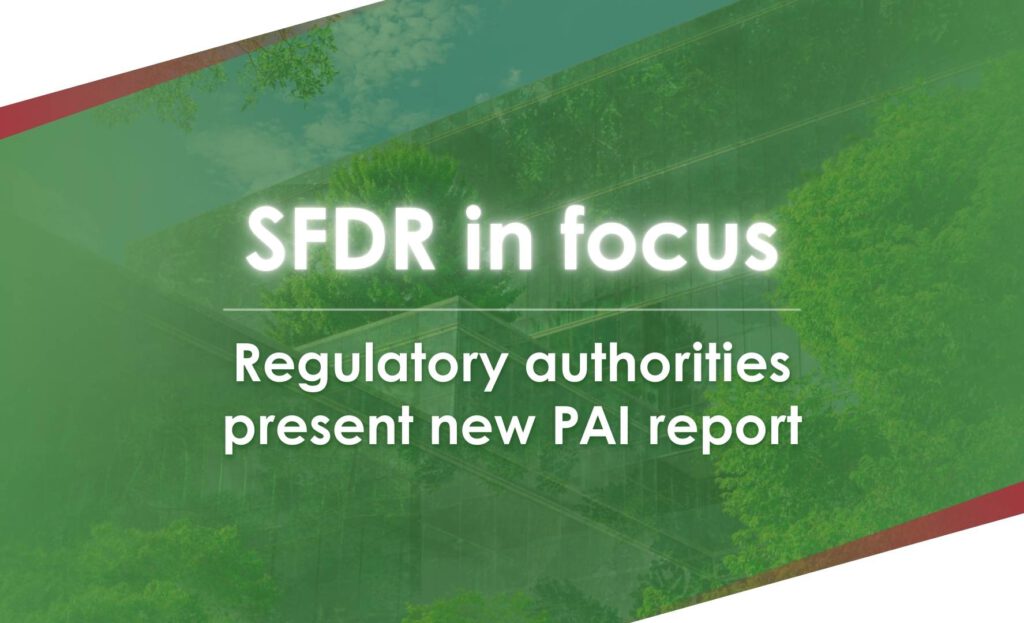European supervisory authorities have published a new report on PAI disclosures. What this means for financial market players, regulators, and companies—and why the findings have implications far beyond the financial sector.
What is it about?
The Sustainable Finance Disclosure Regulation (SFDR) requires banks, funds, and insurers to disclose the sustainability impacts of their investments. At the heart of this are the Principal Adverse Impacts (PAIs) – i.e., the significant negative impacts on the environment and society.
At first glance, this only affects the financial sector. In practice, however, the requirements have a direct impact on companies outside the financial sector: financial players need ESG data from the companies they invest in or lend to.
The News
On September 9, 2025, the European supervisory authorities (EBA, EIOPA, and ESMA) published their new annual report on PAI disclosures. The key findings are as follows:
- Progress: More and more market participants are reporting on PAIs, and data quality is improving.
- Uneven distribution: Large international providers are significantly more transparent than smaller ones.
- Clear mandate: National supervisory authorities should monitor quality more closely in the future.
At the same time, the EU Commission is working on an SFDR reform, with proposals expected to be presented at the end of 2025. The aim is to make PAIs clearer and more practical, to integrate them closely with the CSRD, and to make ESG data an integral part of financial and investment logic.
Why this is important
The PAIs highlight the negative effects caused by investments – from greenhouse gas emissions and biodiversity loss to human rights violations.
- Transparency: Investors see opportunities and risks.
- Comparability: Standardized templates provide clarity.
- Avoiding greenwashing: Even uncomfortable facts become visible.
- Pressure on companies: Financial market participants demand data from the real economy.
This means that PAIs affect not only banks and funds, but also companies outside the financial sector that are required to provide their ESG metrics.








